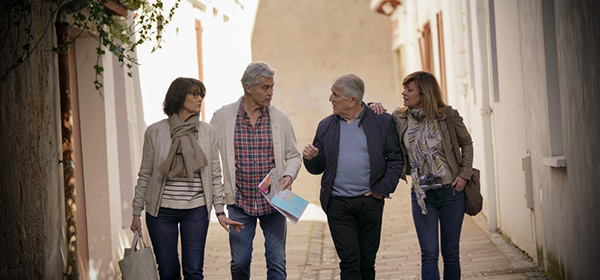At any one time, there are 1000 people in front of Rome’s most famous landmark, the Trevi Fountain. Tourism is one of the world’s largest industries, with a global economic contribution (direct, indirect and induced) of about AU$10 billion each year. And that figure will only increase over time.
The travel and tourism industry serves globe trotters by opening the world’s doors. However, it has detrimental economic and environmental effects on local people and animals, as well as on the destinations themselves. The industry is growing but the world’s most-loved attractions remain the same size. Around the world, the tourist trade has driven up rent and the cost of living for locals. Tourists, living at their leisure, leave behind marks (sometimes literally on historic landmarks), and a trail of plastic waste and other pollution. And this doesn’t even include the general wear-and-tear of even the most ‘green-minded’ traveller.
Now, more than ever, at home and abroad, it’s important for us to not only ‘think green’ but ‘act’ it too. Here are a few simple ways that you can help.
Be considerate of over-tourism
There’s an old saying, ‘don’t go where you aren’t wanted’. This might sound tough but many destinations are so inundated with tourists that their ability to maintain landmarks and systems for keeping cities and towns liveable for locals can’t keep up with the traffic. Some cities, such as Venice and Barcelona, are even holding protests and campaigns to keep tourists out. About half of UNESCO’s 229 World Heritage Sites don’t have tourism management plans in place, but all that may change soon.
You should take care when planning a trip to places such as Cinque Terra, Machu Picchu and the Taj Mahal, which have all been dealing with expanding numbers of tourists over the years. Be a smart traveller and first try to find out whether your destination has already been overloaded. Second, whether it has any restrictions on tourism visitation numbers throughout the year. And third, whether that destination has a tourism management plan.
Learn to say ‘hello’
Before you hit the road (or the sky) to your destination, take some time to get to know the basics of the local language. Having a few conversational phrases, such as ‘hello’, ‘please’ and ‘thank you’ can help to show locals that you have respect for their environment and culture. It will also transform your personal experience of travelling there.
Half the excitement of travelling in foreign countries is becoming immersed in different cultures and social customs. Try to educate yourself on local laws and customs. Something that’s normal for you might be considered offensive to locals – such as taking photographs without permission or chewing gum on the street.
Support local businesses
To reduce your carbon footprint and directly support the local economy, try to purchase products from the people who make them. Whenever possible, opt for locally made crafts from places such as market stalls, instead of mass-produced key rings, magnets and mugs. We can all agree that these make for much nicer keepsakes, anyway. When bartering for souvenirs, consider what a ‘fair price’ means, rather than a ‘good deal’.
Leave animals be
We are all animal lovers at heart. Riding an elephant in India, posing for a photo with a tiger in Thailand and even visiting the zoo sounds like a special way to connect with animals. However, animals that work at these attractions are often mistreated and overworked. According to a study from Oxford, about 75 per cent of animal attractions around the world actually perpetuate wildlife cruelty. And unfortunately, by paying admission to these attractions, you are helping to keep this going.
If riding an elephant has been a life-long dream, that doesn’t mean you can’t do it. Just make sure to research ethical tourism companies first. World Animal Protection (WPA) has a wonderful guide for animal-friendly holidays.
Act ‘green’
The eco-friendly habits you have at home apply everywhere else in the world, too. Try your best to switch off hotel lights before going out, take public transport as much as possible and recycle your plastic waste. Sometimes that means carrying an empty plastic bottle with you until a recycling bin can be found.
In places where drinking tap water isn’t possible, try to reduce your plastic bottle consumption by buying two-litre bottles from supermarkets and refilling your aluminium bottle. This is also an easy way to save money.
Another little piece of advice: leave no trace. Don’t carve your name into anything or leave love locks on bridges. Likewise, try to leave the special places you visit in tact; take photos and memories with you, not shells or stones. Leave it just as you found it, for the next person.
Related articles:
Learn to bargain like a pro
How to respect your destination
Four ways to save on holiday

